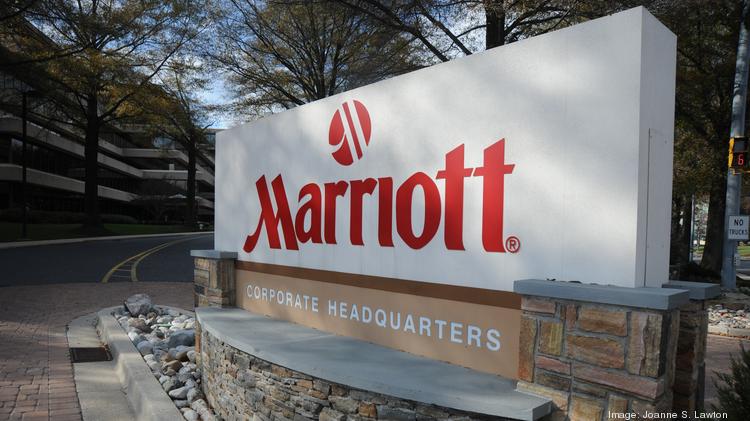Marriott International Inc.’s strong brand reputation and financial position helped the Bethesda-based hotelier ward off competitors in its bid to acquire Starwood Hotels & Resorts, a $12.2 billion deal the companies hope to finalize by the middle of 2016.
New documents on the merger submitted Tuesday to the Securities and Exchange Commission reveal that nearly a dozen U.S. and foreign companies were in some way involved in the discussions to merge with or acquire Stamford, Connecticut-based Starwood (NYSE: HOT) in the past year, including two putting forward all-cash offers for up to $86 per Starwood share — significantly more than the $72.08 per share of implied value Marriott (NASDAQ: MAR) offered.
Those offers give credence to some analysts’ questions on whether the Marriott offer undervalued Starwood — though it should be noted that most of the all-cash offers did not include many details about how the deals would be financed, according to the SEC filing.
The Washington Business Journal named the Marriott-Starwood deal the biggest local business news story of 2015. Click here to see the top 10.
Ultimately, the deal came down to two bids: Marriott’s, and that of another U.S. hospitality company that goes unnamed in the filing.
In October, The Wall Street Journal and other outlets reported that Chicago-based Hyatt Hotels Corp. was in talks to merge with Starwood.
Whereas Marriott’s bid came in at 0.92 share of Marriott stock for each share of Starwood stock, along with $2 in cash per share, the other company’s bid offered 1.12 shares of the new entity’s stock per Starwood share, along with $17.74 per share in cash as part of a special dividend, according to the proxy statement.
Ultimately, Starwood’s board concluded that the Marriott transaction would be more beneficial, given “the superior strategic benefits of a combination with Marriott because of strong management team and lower risk of execution, greater scale of the resulting combined company,” and other factors, according to the filing. With regard to the other bid, Starwood executives also had concerns that a cash-heavy offer would limit the new entity’s leverage, and a complex shareholder voting structure they proposed would limit the shares’ value.
Among Starwood’s listed justifications for the Marriott merger: “M arriott is a best-in-class operator with a seasoned and stable management team and an industry-leading Chief Executive Officer [in Arne Sorenson] that would lead the combined company.”
Marriott’s strong growth performance also played a role, specifically its projected growth in both fee-based revenue and net rooms — both of which are expected to grow more rapidly than Starwood’s. In addition to creating the world’s largest hotel company, a combined Marriott and Starwood would also have the world’s largest pipeline of new hotel rooms.
A few other interesting nuggets from the filing:
• Lawsuits: To date, seven lawsuits have been filed by entities purporting to be stockholders of Starwood alleging that the company’s board and executives agreed to “an unfair price” for the company. Those are all going to play out in Circuit Court in Baltimore; Marriott and Starwood say the suits are without merit. Both companies also acknowledged they expect additional suits to be filed.
• Asset sales: In addition to spinning off and subsequently merging its timeshare business — a condition of the Marriott merger — Starwood will be expected to continue to sell off its real estate portfolio to get in line with Marriott’s asset-light, fee-based business model. Marriott expects to sell off 19 Starwood properties between 2016 and 2018 for an estimated $1.5 billion to $2 billion total.
• Executive compensation: The deal will be lucrative for Starwood executives, including newly named CEO Thomas Mangas, who until recently served as the company’s chief financial officer. Mangas stands to receive $6.1 million in compensation from the deal; Starwood’s president of the Americas, Sergio Rivera, stands to receive $7.4 million; President for Global Development Simon Turner would be entitled to $7 million in compensation and Executive Vice President/Chief Information Officer Martha Poulter would be eligible for $8.9 million.
• Other compensation: The deal includes an allowance of up to $40 million for retention awards to keep key employees on board after the transaction.
Rebecca Cooper covers retail, restaurants, tourism and the arts.
Tags: Banking & Financial Services, brand reputation, executive compensation, Hyatt Hotels Corp., Marriott International, Marriott stock, mergers and acquisitions, Starwood Hotels & Resorts, Thomas Mangas, Travel
 Oxstones Investment Club™
Oxstones Investment Club™